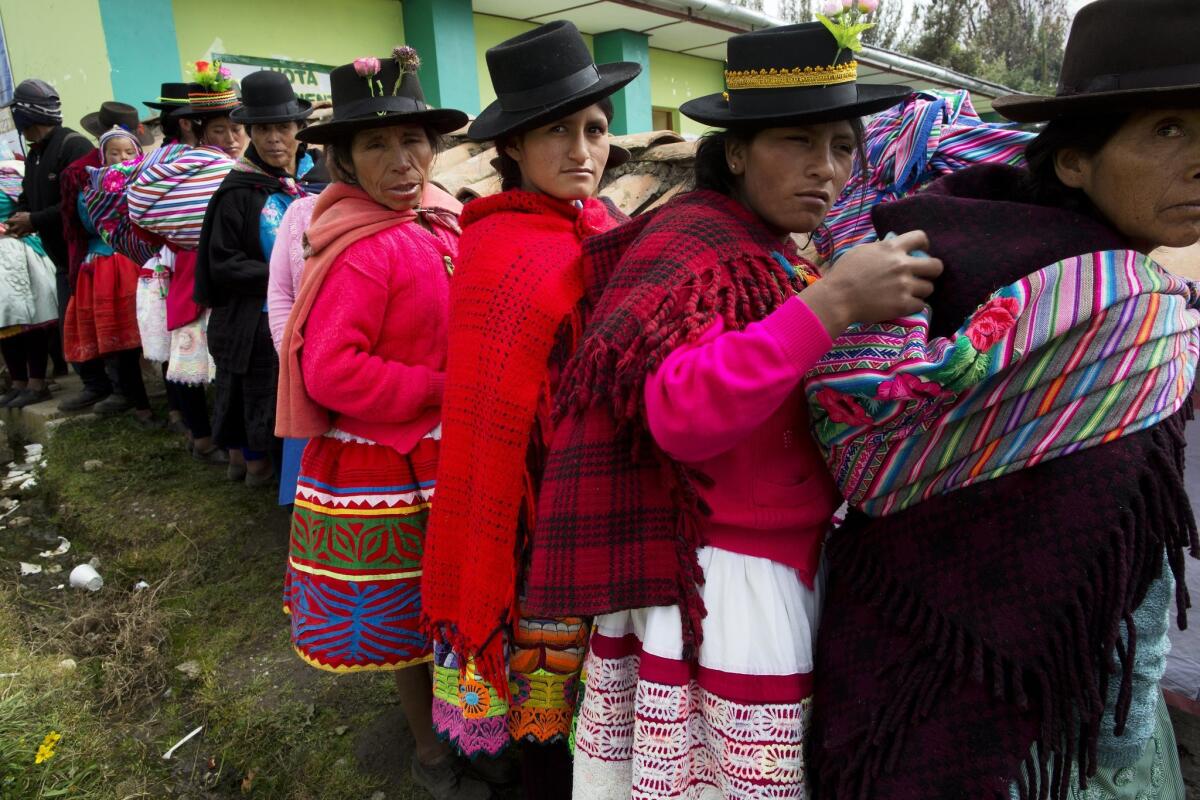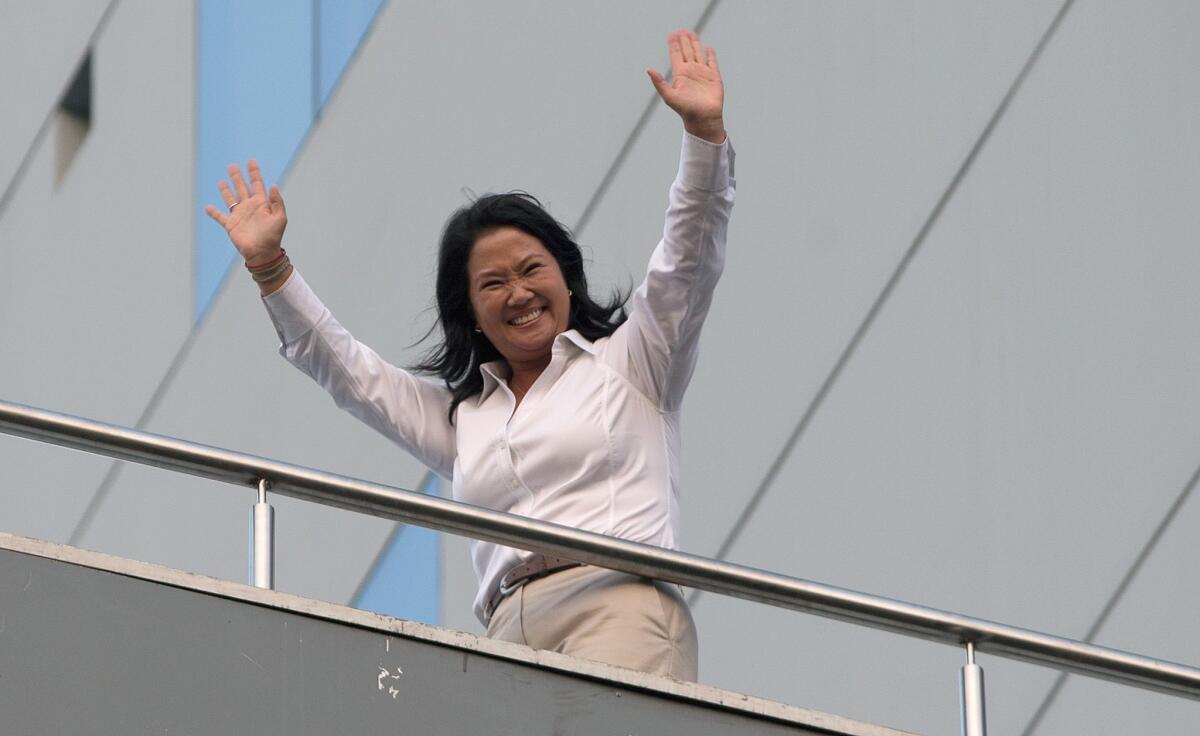Keiko Fujimori looks like a winner in the first round of Peru’s presidential election

Quechua women stand in line to vote in Uchuraccay, Peru, on April 10, 2016.
- Share via
Reporting from Lima, Peru — Keiko Fujimori appeared to be on her way to a first-round win in Peru’s presidential election on Sunday, exit polls showed, but the race for second place and the right to face her in a June 5 runoff was too close to call.
According to several polling firms, Fujimori, a 40-year-old congresswoman and the daughter of disgraced former President Alberto Fujimori, was leading her closest competitors nearly 2 to 1. She was one of 10 candidates on the ballot.
Also up for grabs were all 130 congressional seats. Definitive results were not expected until early Monday, officials said.
Although many Peruvians retain ill feelings toward Alberto Fujimori, now serving a prison term for corruption and human rights abuses, others credit him for suppressing terrorism, reforming the economy and bringing infrastructure to rural areas during his 1990-2000 administration.
“My parents live in the jungle and Fujimori did what no government had ever done,” said Sonia Lagos, 39, an apparel saleswoman, after voting for Keiko Fujimori in Lima. “He built roads and gave us electricity and a medical clinic. All my family and I support her.”

Presidential candidate Keiko Fujimori waves to supporters from her Lima hotel while awaiting the results of Peru’s presidential election on April 10, 2016.
Keiko Fujimori has proved to be a potent party organizer and campaigner for legislative candidates. Exit polls indicated that her Fuerza Popular party would win at least 60 of the 130 seats up for grabs in Sunday’s voting.
The Ipsos and GfK exit pollsters both showed the centrist former finance minister, Pedro Pablo Kuczynski, and socialist Congresswoman Veronika Mendoza garnering about 20% of the votes each as they vied for the second-place finish and a spot in the runoff.
Monitors reported relatively heavy turnout but no violence during the voting, for which 23 million Peruvians were eligible.
Polls taken last week by GfK and others indicate that Kuczynski and Mendoza both have a good chance of beating Fujimori in the runoff. One poll found that 45% of Peruvians said they wouldn’t vote for a Fujimori under any circumstance.
The elder Fujimori was convicted in 2009 and sentenced to 25 years in prison. He is also accused of having ordered the sterilizations of about 300,000 indigenous women. Now 77, his many efforts to secure a pardon have failed and he remains jailed in Fundo Barbadillo prison in Lima.
To try to disassociate herself from her father, Keiko Fujimori promised during the campaign not to seek reelection if victorious and not to pardon her father. She also said she would make reparations to the sterilized women.
But Shane Hunt, a Boston University economics professor emeritus and Peru expert, questioned whether those efforts have been altogether successful. “Her team consists mostly of old Fujimoristas and she draws her support from groups that supported her father,” Hunt said.
Special correspondents Leon and Kraul reported from Lima and Bogota, Colombia, respectively.
More to Read
Sign up for Essential California
The most important California stories and recommendations in your inbox every morning.
You may occasionally receive promotional content from the Los Angeles Times.













